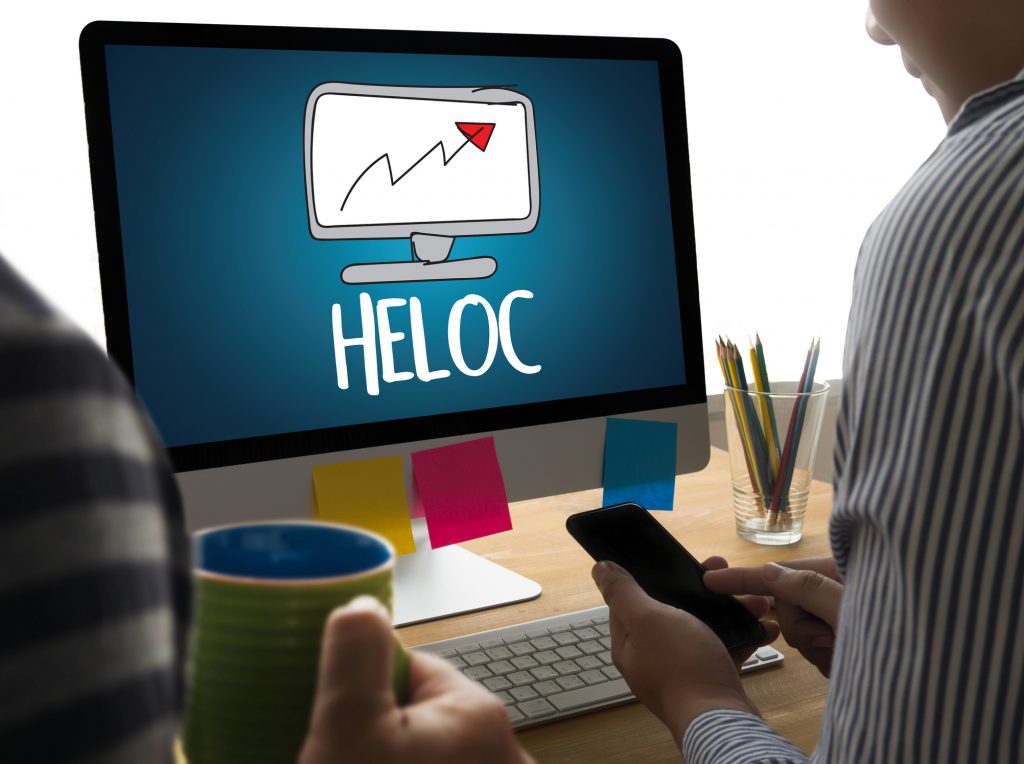One of the reasons owning a home is more valuable than renting is because with each mortgage payment you are building home equity. What exactly is home equity?

Your home’s equity is equal to the amount of your mortgage that you have paid off or the portion of your property that you truly own. Home equity is valuable because if needed you can withdraw your home’s equity through a cash-out refinance or borrow your home’s equity through a home equity line of credit. A home equity line of credit, or HELOC is a revolving line of credit that lets you borrow money against your home and use it like a credit card or personal loan. With a cash-out refinance, you originate a new mortgage equal to the amount of equity you withdraw and the balance of your loan. With a HELOC, your mortgage stays the same, you just borrow against your home equity.
Before using your home’s equity, you should establish how the money will be used. Borrowing freely against your home without a clear goal or repayment plan could lead to financial woes. Here are the five most common reasons for tapping into your home equity:
Home Improvements
Installing solar panels, adding a room, or updating the appliances in your home are some of the most common ways homeowners use HELOCs. When you make an improvement in your home, think about how the investment will add value. While a kitchen remodel typically has an 81% ROI, the impact that energy efficient appliances can have on your ongoing utility costs may be worth the investment. Some improvements can also make your home easier to sell. A poll by Realtor.com revealed that 69% of home buyers would pay more for a home with new appliances.
Know your audience and long-term plans for your home before deciding on the scale of your remodel. Investing $70,000 into the kitchen of a $200,000 home might not be a cost you can recoup when you’re ready to sell.
Debt Consolidation
HELOCs typically have lower interest rates than credit cards because your debt is secured against your property. According to Bankrate data, the average variable credit card interest rate was 17.87 percent as of late April 2019, while the average rate on a $30,000 HELOC was 6.75 percent. By using a home equity loan to pay your debt off, you could save yourself thousands of dollars in interest, which you could invest back into your home by paying down your loan’s principal.
Remember, if you don’t fix the budgeting problems that led to the credit card bills in the first place, you’ll soon find yourself with a HELOC balance and more credit card bills. Talk with a financial advisor or mortgage professional first to find out if a HELOC is the best way for you to consolidate your debt.
College or Education Costs
Similar to credit cards, parent loans, or loans taken out by parents to fund their children’s college expenses, also have high interest rates. Student loans have fixed low rates and the potential for debt forgiveness, whereas parent loans have higher rates, an origination fee over 4%, fewer repayment options, and no hope of forgiveness. If you have the means to help your child with their tuition and still save for retirement, then a HELOC can help cover those costs.
Emergency Expenses
Financial planners recommend keeping an emergency fund equal to three months’ worth of expenses or more, but life happens and that’s not always realistic. Saving money isn’t easy, and a lot can go wrong in the average two years that it takes families to save that amount. A HELOC can supplement an inadequate emergency fund and help fund these expenses while you build or rebuild your cash stash – but proceed with caution. You should only tap into your equity if you’ve exhausted your non-retirement savings options.
Long-Term Investments
Some homeowners use their equity to invest in the stock market or real estate, expecting the returns to exceed the cost of the money that they borrowed. Before investing, do your research, there is no guarantee on the stability of any market, but you can review market trends. Investing in real estate is generally considered more stable than the stock market, because real estate tends to appreciate.
Buying a home to rent can be a good investment as long as the rent you collect covers your mortgage and helps pay down the HELOC you used to buy the home. Using a HELOC to buy a vacation home or fund 100% of your home purchase is not financially wise. If you’re looking to get the most out of your equity and have good credit, most financial professionals recommend leaving a 20% equity cushion in your home.
A HELOC could be a way to reinvest in your home, fund urgent expenses, or even invest elsewhere. When you are considering a HELOC, set a plan with how you are going to use it and how you are going to pay it back. Unlike credit card debt, you are using your home as collateral. Failure to repay your HELOC could lead to mortgage problems and eventually the foreclosure of your home. Working with a trusted mortgage professional is the best way to ensure you choose the loan option best for you.




